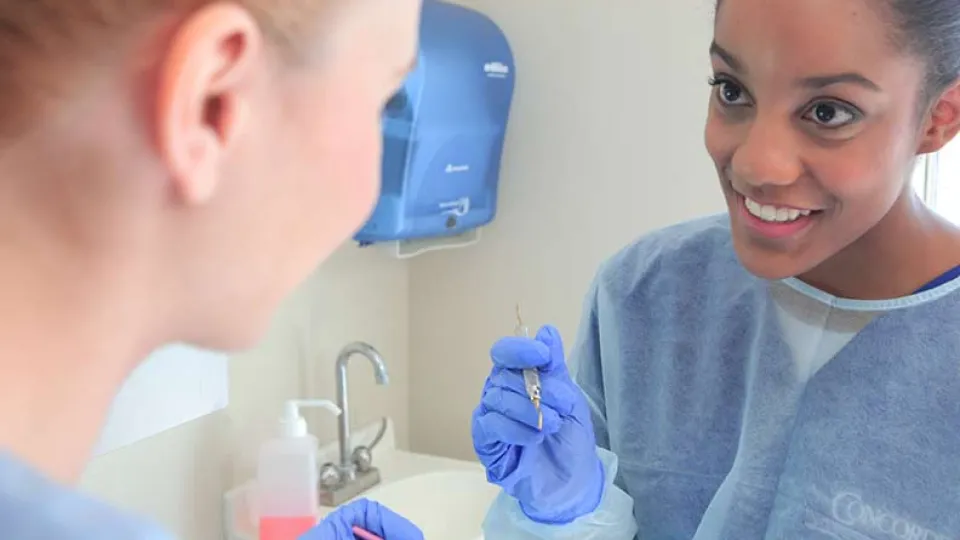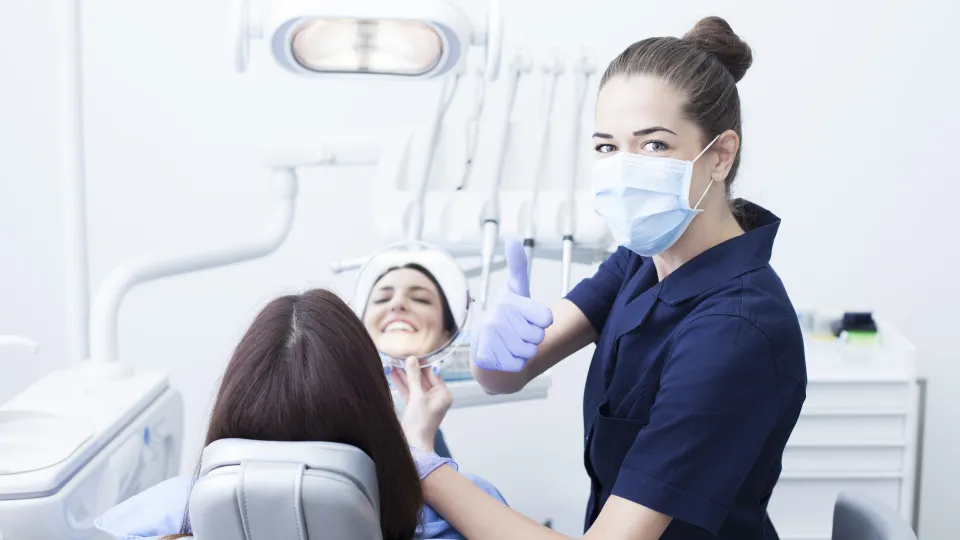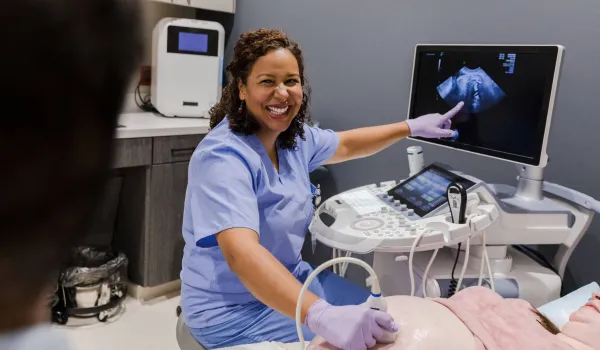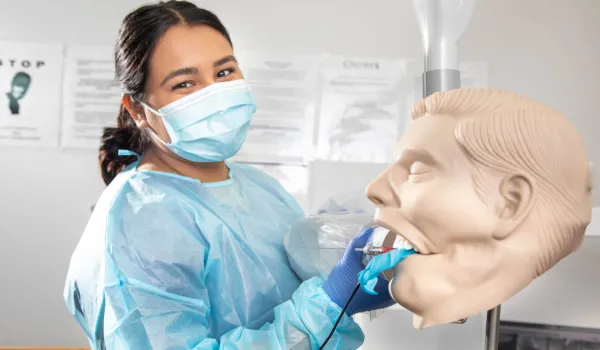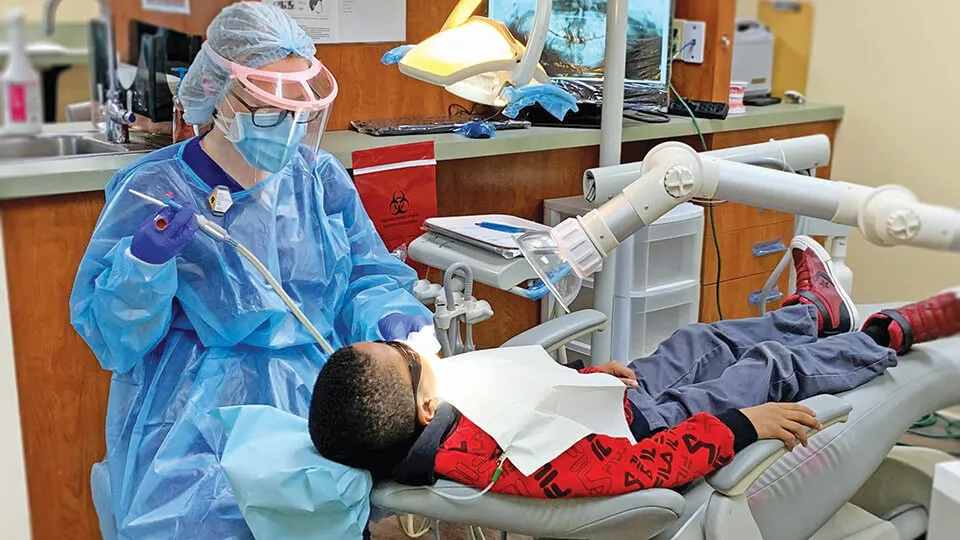
Clinical dental hygienists play a crucial role in the healthcare industry, serving as the frontline guardians of oral health. Their work not only helps prevent dental problems but also contributes to their patients' overall well-being. This profession is essential in educating individuals about proper oral hygiene practices, which may significantly impact their health. As the demand for dental hygienists grows, many individuals are considering this rewarding career path.
This guide explores the path to becoming a dental hygienist, including daily responsibilities, educational requirements, and career opportunities.
What Does a Dental Hygienist Do?

Dental hygienists are vital members of the dental care team. Their primary responsibilities include:
- Conducting patient assessments: Reviewing dental and health histories to identify any potential issues
- Performing dental cleanings: Removing plaque, tartar, and stains from teeth using specialized tools
- Applying preventive treatments: Administering fluoride treatments and sealants to protect teeth
- Taking X-rays: Using radiographic equipment to capture images of the teeth and jaw for diagnostic purposes
- Educating patients: Providing guidance on proper oral hygiene practices and dietary choices that promote oral health
- Documenting care: Maintaining accurate records of patient treatments and findings for future reference
These tasks highlight the importance of clinical dental hygienists in maintaining oral health and preventing disease.
Related: What Does a Dental Hygienist Do?
Education and Training Requirements
Becoming a dental hygienist requires a combination of formal education and hands-on training. Below, we outline the key steps and requirements.
Prerequisites
Before entering a dental hygiene program, students typically need to complete certain prerequisites, which may include:
- High school diploma or equivalent
- Completion of courses in biology, chemistry, and mathematics
- Recommended coursework in health and psychology
- Minimum GPA requirements, often around 2.5 to 3.0
- Standardized testing (e.g., ACT or SAT), for certain programs
These foundational courses help ensure that students possess the necessary background knowledge for advanced studies in dental hygiene.
Dental Hygiene Programs
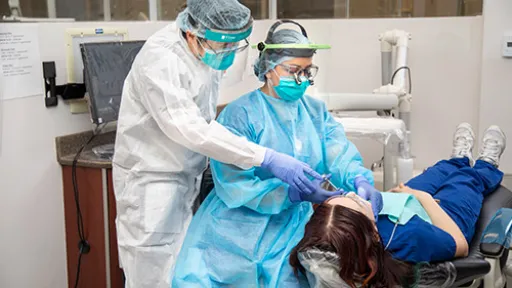
Dental hygiene programs vary in structure and duration, catering to different educational backgrounds and career goals. The main types include:
- Associate degree programs: Typically two years long, these programs provide entry-level training for dental hygienists.
- Bachelor's degree programs: These four-year programs offer more comprehensive education and may include advanced topics in dental hygiene and public health.
- Degree completion programs: These courses of study are designed for licensed dental hygienists with an associate degree who wish to obtain a bachelor's degree.
- Certificate programs: Shorter programs focused on specific skills or areas within dental hygiene, these are often used for continuing education.
These programs should be accredited by the Commission on Dental Accreditation, ensuring they meet minimum professional standards.
Curriculum
The curriculum for clinical dental hygiene programs generally covers essential subjects such as:
- Anatomy and physiology: This subject covers the structure and function of the human body, focusing on the head and neck areas relevant to dental hygiene.
- Oral pathology: Oral pathology involves the study of diseases that affect the oral cavity, including their causes, processes, and effects.
- Periodontology: Periodontology is the study of the supporting structures of the teeth, including the gums, alveolar bone, and periodontal ligament, as well as the diseases and conditions that affect them.
- Radiology: Radiology in dental hygiene programs encompasses X-rays and other imaging techniques used to diagnose and treat oral conditions.
- Nutrition related to oral health: This subject explores the connection between diet and oral health, including the impact of nutrition on the development and prevention of oral diseases.
Clinical Experience
Hands-on training is a critical component of dental hygiene education. Students engage in supervised clinical practice, which is vital for developing practical skills.
During clinical rotations, students work directly with patients under the guidance of experienced instructors. This experience allows them to apply theoretical knowledge in real-world settings, enhancing their competence in procedures such as teeth cleaning, patient assessment, and radiographic techniques. The practical nature of this training ensures that graduates are well-prepared to enter the workforce as capable dental hygienists.
Licensing and Certification
After completing an accredited clinical dental hygienist program, graduates must obtain licensure to practice. Here are the steps involved:
1. National Board Dental Hygiene Examination
The National Board Dental Hygiene Examination is a crucial milestone for aspiring dental hygienists. Administered by the Joint Commission on National Dental Examinations, the NBDHE assesses the knowledge and skills necessary for safe and effective dental hygiene practice. Passing the NBDHE is essential for licensure in all states, ensuring that dental hygienists meet national standards of competency.
2. State Clinical Examination
Each state requires dental hygienists to pass a state-specific clinical examination to demonstrate their practical skills. These exams typically involve performing dental hygiene procedures on patients under the supervision of examiners. The clinical examination ensures that candidates can apply their theoretical knowledge in real-world scenarios, maintaining high standards of patient care and safety.
3. State Licensure
To obtain state licensure as a dental hygienist in the US, candidates must:
- Graduate from an accredited dental hygiene program
- Pass the NBDHE
- Successfully complete a state or regional clinical board examination
- Apply to the state dental board, including proof of education and examination results
- Pass a state jurisprudence examination, if required
- Provide proof of Basic Life Support certification
- Undergo a criminal background check and obtain child abuse clearance, if applicable
The licensure process ensures that dental hygienists are qualified to provide safe and effective care. Each state may have additional specific requirements, so it's important to check with the state dental board for detailed information.
4. Continuing Education
Continuing education is vital for dental hygienists to maintain their licensure and stay updated with the latest advancements in dental care. Requirements typically include:
- Completing a minimum number of CE hours every renewal period
- Attending live or online courses, webinars, and workshops
- Focusing on clinical and scientific topics relevant to dental hygiene
- Keeping records of completed CE activities for verification
Career Opportunities and Advancement
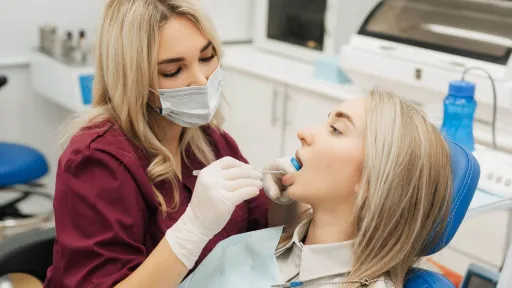
The field of dental hygiene offers diverse career opportunities and paths for advancement.
1. Work Settings
Dental hygienists may work in various environments, including:
- Private dental practices
- Hospitals or clinics
- Public health organizations
- Educational institutions
These varied settings allow hygienists to choose an environment that aligns with their interests and career goals.
2. Specializations
Dental hygienists may choose to specialize in areas such as:
- Pediatric dentistry: Focusing on treating children's dental needs
- Periodontics: Specializing in gum disease prevention and treatment
- Public health: Engaging in community outreach and education on oral health issues
3. Advanced Roles
With experience, some dental hygienists may advance into roles such as:
- Clinical instructor: Teaching future dental hygiene students
- Dental office manager: Overseeing operations within a dental practice
These advanced roles may come with increased responsibilities and opportunities for professional growth.
4. Entrepreneurship
Some dental hygienists may choose to pursue independent practice, offering mobile or independent hygiene services. This path requires additional business and regulatory knowledge but may offer greater autonomy.
Job Outlook
The job outlook for dental hygienists is promising, with employment projected to grow by 9% from 2023 to 2033, which is much faster than the average for all occupations. This growth is projected to result in about 16,400 job openings each year, driven by the need to replace workers who transfer to different occupations or retire. This positive outlook may be due to the increasing emphasis on preventive dental care and the growing demand for dental services.
Related: Day in the Life of a Dental Hygienist
Skills and Qualities of Successful Dental Hygienists
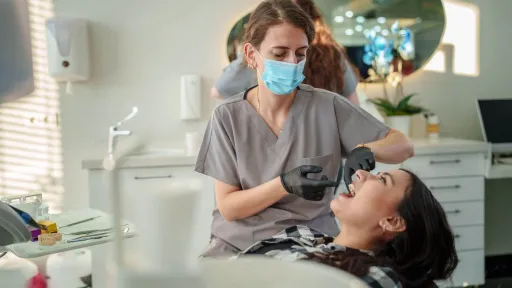
Certain skills and qualities are essential for success in the dental hygiene profession. These include:
- Attention to detail: Dental hygienists must pay close attention to small details to ensure thorough cleaning and spot potential issues.
- Manual dexterity: Precise hand-eye coordination is crucial for performing delicate dental procedures and handling tools.
- Strong communication skills: Effective communication with patients and other dental staff is important for providing instructions and building rapport.
- Empathy and patience: Dental hygienists should be understanding and patient while working with patients who may be anxious or in discomfort.
- Critical thinking and problem-solving abilities: Being able to analyze situations and find effective solutions is essential for addressing dental issues.
- Organizational skills: Keeping track of patient records, appointments, and treatment plans requires strong organizational abilities.
- Physical stamina: The job involves being on your feet for long periods and performing repetitive tasks, so physical endurance is important.
Challenges and Rewards of the Profession
While being a dental hygienist can be rewarding, it also comes with challenges.
Challenges
Some common challenges faced by dental hygienists include:
- Managing patient anxiety: Many patients experience fear or discomfort during visits, requiring hygienists to employ calming techniques.
- Physical demands: The job may be physically taxing due to long periods spent standing or bending over patients.
- Keeping up with regulations: Staying informed about changing laws and best practices may require ongoing education and diligence.
Rewards
Despite these challenges, many find being a dental hygienist highly rewarding:
- Making a difference: Helping patients maintain their oral health can significantly impact their overall well-being.
- Building relationships: Dental hygienists often develop long-term relationships with patients, fostering trust and loyalty.
- Career stability: With strong job growth projections, this profession offers good job security compared to many other fields.
Conclusion
Training to become a dental hygienist offers an exciting opportunity to make a meaningful impact on people's lives through improved oral health. With hands-on training, diverse career options, and strong job growth prospects, this profession presents numerous benefits for those who choose it. For anyone considering this path, pursuing education at Concorde Career College can be an excellent first step toward joining this rewarding field. Concorde's Dental Hygiene programs at select campuses are accredited by CODA. Please check with your local campus for program availability.
FAQs
Here are the answers to some of the most common questions about becoming a dental hygienist:
Are There Physical Requirements Necessary To Perform the Functions of a Dental Hygienist?
Yes, dental hygienists must meet certain physical requirements, including manual dexterity for precise hand movements, stamina to stand or sit for extended periods, strength to assist patients and handle equipment, and good vision for detailed work.
What Are the Education Requirements for Becoming a Dental Hygienist?
To become a dental hygienist, candidates must complete an accredited dental hygiene program, which can be an associate or bachelor's degree, pass a licensing exam, and pass a state-specific clinical examination. Prerequisites include a high school diploma or equivalent and coursework in biology, chemistry, and mathematics.
How Long Does It Take To Become a Dental Hygienist?
The duration of a dental hygiene program varies. An associate degree typically takes two years, while a bachelor's degree may take four years. Additional time may be required for licensure and certification.
What Basic Academic Abilities Are Necessary for a Dental Hygiene Program?
Students entering a dental hygiene program need strong skills in reading, writing, mathematics, and science. Success in high school courses such as algebra, chemistry, and biology is important to prepare for the rigorous academic demands of the program.
What Are the Licensing Requirements for Dental Hygienists?
Licensing requirements include passing the NBDHE, a state clinical examination, and obtaining state licensure. Continuing education is also necessary for license renewal.
U.S. Bureau of Labor Statistics. (2024, August 29). Dental Hygienists: Occupational Outlook Handbook. Bls.gov. https://www.bls.gov/ooh/healthcare/dental-hygienists.htm
Take The Next Step Towards a Brighter Future
Interested in learning more about our Dental Hygiene program?
We have a Concorde representative ready to talk about what matters most to you. Get answers about start dates, curriculum, financial aid, scholarships and more!


